Deleting objects
You can delete point or line objects (with all associated objects) through the vw_tww_(wastewater_structure/reach) layers. You can also pick and delete only a specific object (e.g. cover).
Delete Reach
Select vw_tww_reach and change to edit mode.
Select the reach(es) you want to delete. You can click on an object or draw an area.

Use the top menu Edit –> Delete Selected to delete.
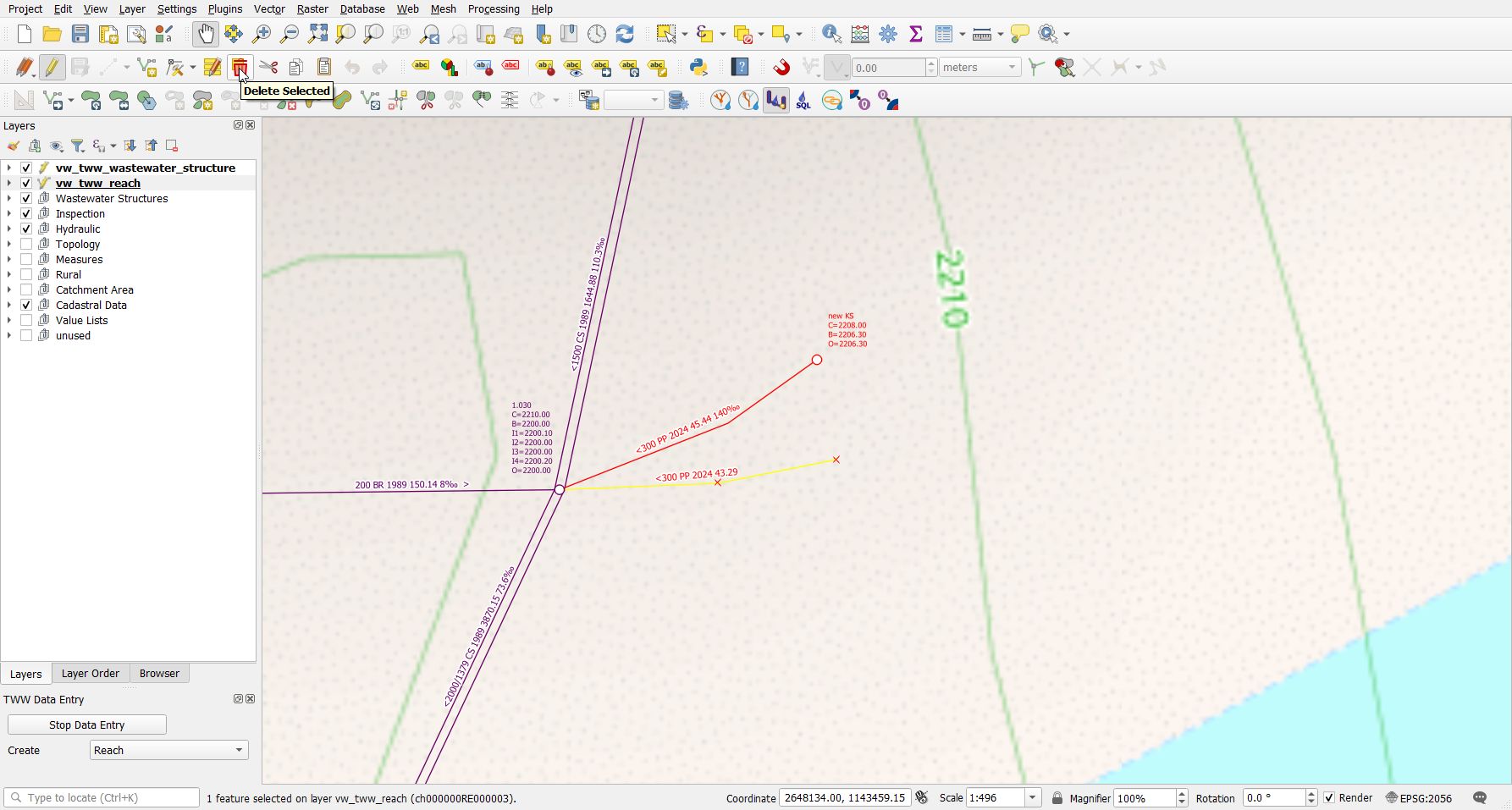
Note
The easiest way is to simply press the Delete key on your keyboard. Another way is to press the Delete button located in the Digitizing toolbar.

Depending on how you customized QGIS the Digitizing toolbar may be hidden or located elsewhere.
Deselect the edit mode and confirm changes to layer. All changes will be saved to database.

Note
Delete reach deletes also all connected structure parts (e.g. dryweather_downspout). The connected channel is only deleted if there is no other wastewater networkelement connected to the channel. If there are two reaches connected to one channel, the channel is only deleted if both reaches are deleted.
Delete Manhole or other Wastewater Structure
Select vw_tww_wastewater_structure and change to edit mode
Select the objects (manholes, special structures etc.) you want to delete
Use Edit –> Delete Selected to delete.
Stop the editing mode and confirm changes to layer. All changes will be saved to database.
Note
Delete wastewater structures deletes also all connected structure parts (cover, access_aid etc) and all connected wastewater nodes. fk_wastewater_networkelement in reachpoints, that where connected to the node, are set to NULL.
Delete Wastewater Structure, but keep the wastewater_node and the connections to the wastewater_node
First, you have to kill the connection between wastewater_node and wastewater_structure. Because the fk_wastewater_structure field is not visible in the wastewater_node feature attribut window (this field make no sense in other cases, where the form is also used), you have to follow this way:
Select vw_tww_wastewater_structure and change to edit mode
Use the Identify Features tool to open the form of the manhole you want to delete
Switch to Wastewater Nodes tab
Select the Node, that should not be deleted
Use the button Unlink selected child record(s)
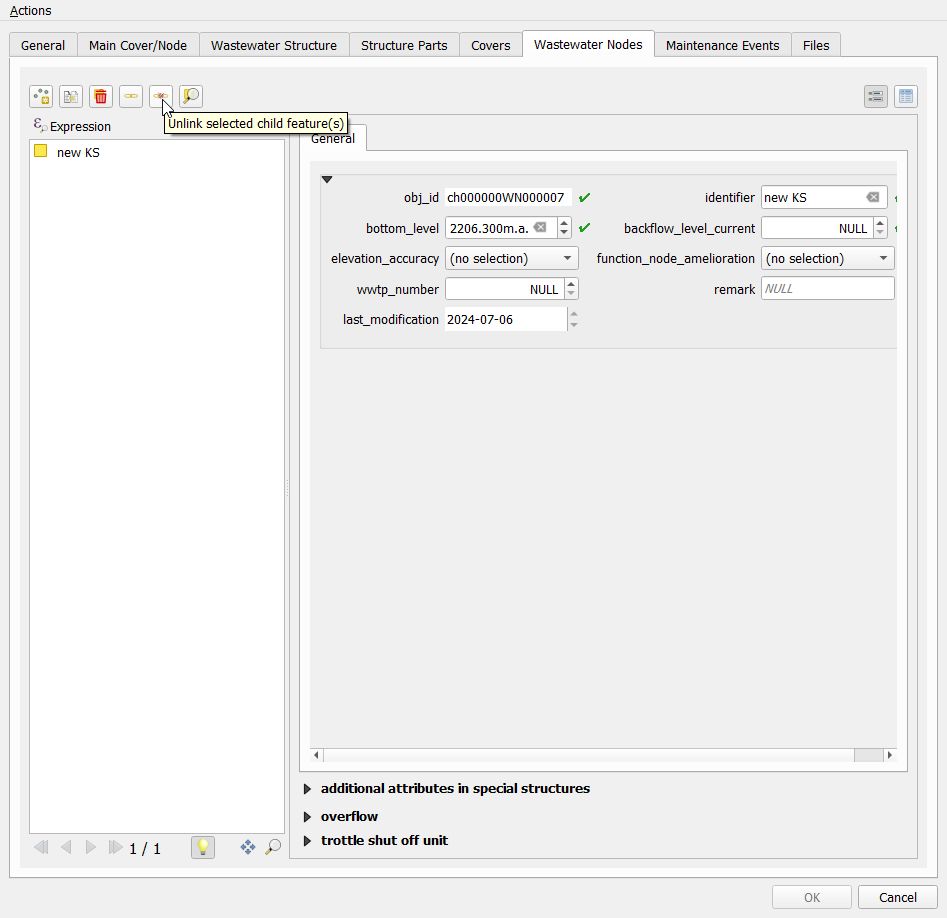
Click OK and close the form window
The wastewater node is no no more part of the wastewater_structure
Select the object (manhole, special structure etc.) you want to delete
Use Edit –> Delete Selected to delete.
Stop the editing mode and confirm changes to layer. All changes will be saved to database.
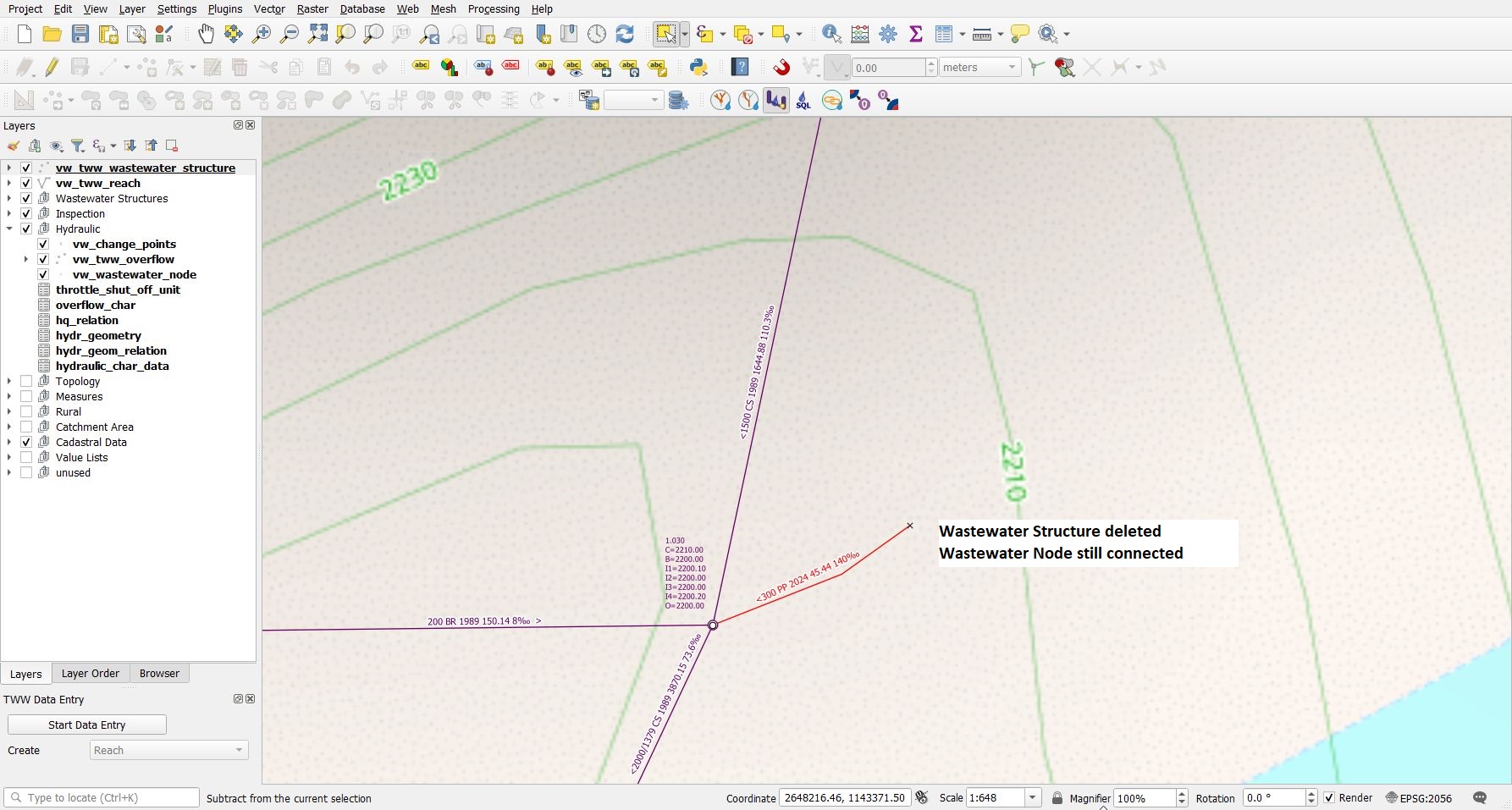
Delete Cover
Select vw_tww_wastewater_structure and change to edit mode
Select the object (manholes, special structures etc.) from which the cover is to be deleted
Use the Identify Features tool to open the form
Switch to the covers tab
Select the cover(s) you want to delete
Click the button delete selected child features to delete the covers
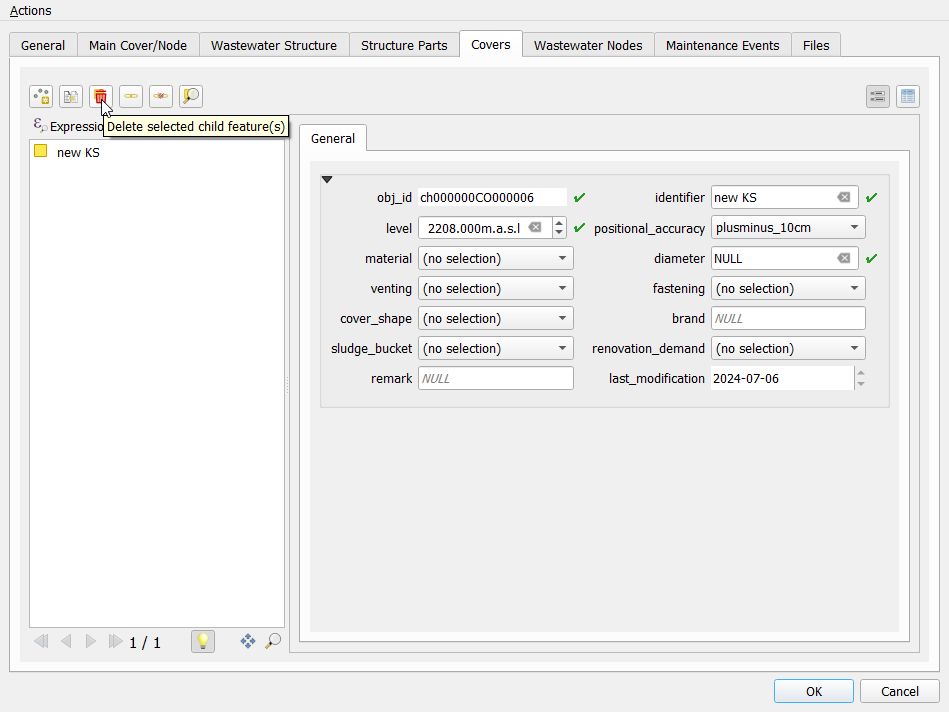
Click save on the form
Deselect the edit mode and confirm changes to layer. All changes will be saved to database.
Second way to delete a cover
Select the vw_cover layer and change to edit mode
Select the cover
Use Edit –> Delete Selected
Stop the editing mode
Delete Structure parts
Select vw_tww_wastewater_structure and change to edit mode
Select the object (manholes, special structures etc.) from which a structure part is to be deleted
Use the Identify Features tool to open the form
Switch to the structure parts tab
Select the structure part you want to delete
Click the red x button to delete the structure parts
Click save on the form
Stop the editing mode and confirm changes to layer. All changes will be saved to database.
Delete detailed geometries
Attention
Deleting features directly from wastewater_structure (layergroup Wastewater Structures) will remove the complete wastewater structure from the database and not only the geometry of the wastewater structure!
Select layer wastewater_structure and change to edit mode
Activate the Delete part tool from the Advanced digitizing toolbar
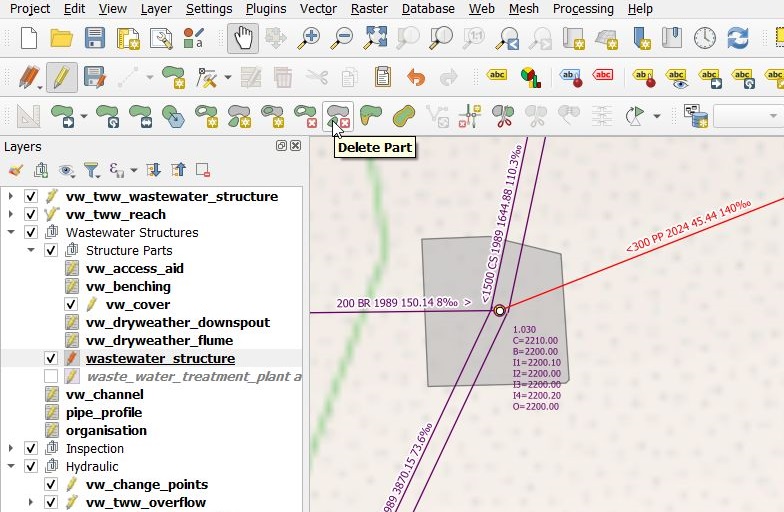
You get a cross-cursor. Click on the part you want to delete (there is no question if you really want… If you click, the part is deleted!)
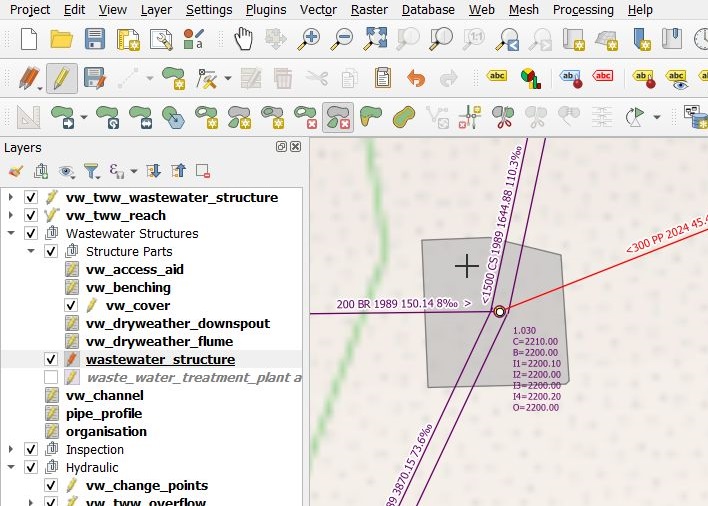
Stop the editing mode and confirm changes to layer. All changes will be saved to database.